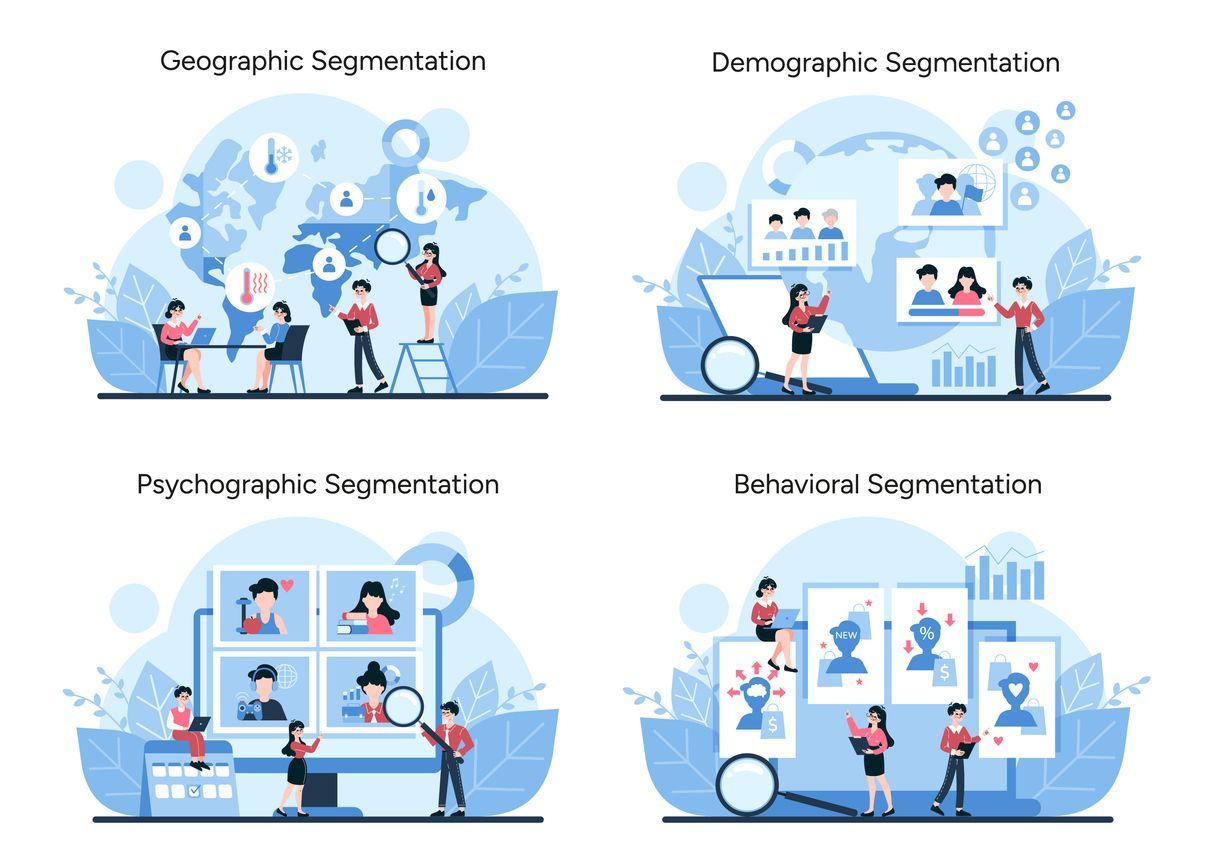Mentorship in the Pharmaceutical Industry: A catalyst for success
The pharmaceutical industry is constantly evolving, but one ingredient remains essential: mentorship to guide the next generation.

The body content of your post goes here. To edit this text, click on it and delete this default text and start typing your own or paste your own from a different source.
Mentorship is a powerful tool for personal and professional growth across various industries, but it holds particular significance in the pharmaceutical sector. With the increasing complexity of technologies, regulations, and scientific requirements, mentorship offers a unique opportunity for professionals to share knowledge, develop skills, and guide new generations toward success. This article explores the importance of mentorship in the pharmaceutical industry, its benefits, and how it can be effectively implemented.
Why is mentorship essential in the pharmaceutical industry?
Transfer of knowledge and technical skills
The pharmaceutical industry is characterized by constant innovation and rapid technological advancements. Mentorship facilitates the transfer of essential knowledge and specific skills required to thrive in this ever-evolving environment. Mentors, often seasoned experts, can share practical tips, advanced techniques, and strategies to address complex challenges that are rarely taught in formal training or textbooks.
Career guidance and development
Navigating a pharmaceutical career can be challenging, especially for newcomers to the industry. Mentorship provides essential support by offering advice on career progression, helping mentees identify their strengths and weaknesses, and guiding them in making strategic decisions. An experienced mentor can also expand opportunities by introducing their mentees to a broader professional network, thereby opening doors for growth and development.
Guidance in a regulated environment
The pharmaceutical sector is one of the most heavily regulated industries globally. Understanding compliance standards, good manufacturing practices, and international regulations is critical for professionals in this field. A mentor with industry experience can provide valuable insights into navigating these complex regulations while staying updated with the latest legislation and guidelines.
Benefits for mentees
Accelerated skill development
Mentorship enables mentees to quickly acquire technical and behavioral skills specific to the pharmaceutical industry. With the guidance and support of an experienced mentor, mentees can learn how to handle complex situations and overcome professional challenges. For instance, mentees may gain knowledge of advanced project management techniques, strategies for addressing regulatory issues, or sophisticated laboratory methods.
Access to a professional network
Mentorship provides mentees with access to a broader network of industry professionals. They often benefit from introductions to key contacts, networking opportunities, and recommendations for future roles. This network can be crucial for career advancement, providing access to opportunities that might otherwise remain undiscovered.
Boosted confidence and motivation
Having a mentor who believes in their potential significantly enhances mentees' confidence. The consistent support and encouragement from a mentor help mentees feel more assured in their ability to tackle tasks and take on new challenges. This increased confidence often translates into greater motivation to excel in their work and pursue ambitious career goals.
Clarity on career progression
An experienced mentor can offer valuable insights into the various career paths available in the pharmaceutical industry. They can help mentees identify the skills they need to develop, the milestones they need to achieve, and the opportunities to seize to reach their long-term professional goals.
Strategic decision-making skills
Through mentorship, mentees learn to assess professional situations strategically. This includes weighing the risks and benefits of various options, anticipating the outcomes of decisions, and choosing actions that align their personal objectives with the company’s goals.
Benefits for Mentors
Professional and personal fulfillment
Mentorship provides mentors with immense satisfaction as they witness their mentees' progress. Actively contributing to someone else’s growth and seeing them succeed through their guidance is often seen as a personal achievement. It also gives mentors a sense of accomplishment in shaping the next generation of leaders in the industry.
Leadership skill development
Being a mentor enhances leadership skills. Mentors learn to guide, inspire, and motivate their mentees. They must also practice active listening, clear communication, and patience—essential qualities for any leader. Mentorship also helps mentors refine their people management and conflict-resolution abilities, which are vital for leadership roles.
Expanded professional network
Like mentees, mentors benefit from an expanded professional network. Interacting with promising young professionals can introduce mentors to fresh ideas, technologies, or perspectives that enrich their own careers. Additionally, these relationships often evolve into long-term mutual support.
Continuous learning
Mentorship is not a one-way process. Mentors frequently learn from their mentees, especially when mentees bring new perspectives or updated knowledge about industry trends. This exchange helps mentors stay current with advancements in the pharmaceutical field and continuously improve their skills.
Contributing to the company and industry
By investing time in mentorship, mentors directly contribute to their company’s culture and the development of the industry. They help create more competent, engaged employees who align with organizational goals, ultimately boosting efficiency and innovation within the company.
Summary of the benefits of mentorship in the pharmaceutical industry
Mentorship in the pharmaceutical industry is a mutually beneficial relationship that fosters both personal and professional development for both parties. For mentees, it is a valuable opportunity to develop skills, expand their network, and prepare for a successful career. For mentors, it provides an opportunity to refine their leadership skills, stay engaged in their own development, and play a crucial role in shaping the future leaders of the industry. In a sector as dynamic and complex as pharmaceuticals, mentorship is not just a benefit; it is a necessity for maintaining excellence and fostering innovation.
How to implement an effective mentorship program in the pharmaceutical industry
Define clear objectives
A successful mentorship program begins with well-defined objectives. Whether it’s about developing specific skills, preparing employees for leadership roles, or improving talent retention, setting clear expectations from the outset is crucial.
Select the right mentorship pairs
The success of mentorship largely depends on the compatibility between the mentor and the mentee. It is essential to consider the skills, aspirations, and personalities of both parties to form pairs that will work effectively together.
Monitor and evaluate the program
Regular monitoring and evaluations ensure that the mentorship program is achieving its objectives. Continuous feedback can help adjust the program and address the evolving needs of both mentees and mentors.
Encourage open communication
Open and honest communication is at the heart of a successful mentorship relationship. Encouraging regular exchanges and frank dialogue helps build trust between mentors and mentees, ensuring the relationship thrives.
Conclusion
Mentorship is a powerful lever for talent development in the pharmaceutical industry. It not only facilitates the transfer of valuable knowledge and technical skills but also guides professionals in advancing their careers. By investing in well-structured mentorship programs, pharmaceutical companies can enhance talent retention while fostering a culture of sharing and collaboration—essential for driving innovation and staying competitive in an ever-evolving sector.
Mentorship is the future of the pharmaceutical industry. By encouraging this practice, we can not only shape the leaders of tomorrow but also build a stronger and more cohesive industry.

FAQ
1. What is mentorship in the pharmaceutical industry?
Mentorship is a professional relationship where an experienced mentor shares their knowledge, skills, and advice with a mentee to help them develop both professionally and personally. In the pharmaceutical industry, this can include guidance on navigating regulations, adapting to technological advancements, or advancing in one’s career.
2. Why is mentorship important in the pharmaceutical industry?
The pharmaceutical sector is complex and constantly evolving. Mentorship enables:
The transfer of advanced technical knowledge.
Guidance for young professionals in their careers.
Facilitation of learning about regulatory standards and best practices.
This helps companies maintain excellence and develop a skilled workforce.
3. What are the main benefits of mentorship for mentees?
Mentees benefit in several ways:
Rapid acquisition of technical and behavioral skills.
Access to an expanded professional network.
Increased confidence and motivation through mentor support.
Clarity on career progression and the steps needed to achieve their goals.
Improved strategic decision-making abilities.
4. What benefits do mentors gain from this relationship?
Mentors also benefit from this dynamic:
Personal satisfaction from seeing their mentees succeed.
Development of leadership skills such as communication and people management.
Expansion of their professional network through interactions with young talent.
Continuous learning through the fresh perspectives of mentees.
Contribution to the company and industry by shaping competent leaders.
5. How can pharmaceutical companies implement an effective mentorship program?
To succeed, a mentorship program should include:
Defining clear objectives: For example, developing skills or preparing employees for leadership roles.
Creating compatible pairs: Based on skills, aspirations, and personality.
Implementing regular monitoring and evaluation: To adapt the program to evolving needs.
Encouraging open communication: To build a trusting relationship.
6. What challenges can mentorship help overcome in the pharmaceutical industry?
Mentorship helps professionals navigate:
The complexity of pharmaceutical regulations.
Technological challenges associated with innovations.
Strategic decision-making in regulated environments.
It also promotes talent retention and enhances company culture.
7. Is mentorship a common practice in all pharmaceutical companies?on
While many companies recognize the importance of mentorship, its adoption can vary. Larger organizations often have well-structured programs, while smaller ones may rely on informal initiatives. However, its critical role in talent development is encouraging more companies to invest in formalized programs.
8. Is mentorship a one-way process?ou question
No, mentorship is a mutually beneficial learning relationship. Mentees learn from mentors, but mentors also gain new ideas and perspectives through their interactions with young professionals.
9. What are the impacts of mentorship on the pharmaceutical industry as a whole?
Mentorship contributes to:
Developing a skilled and competent workforce.
Driving innovation through knowledge sharing.
Strengthening collaboration and company culture.
Maintaining a competitive and growing pharmaceutical industry.
10. What are the next steps to promote mentorship in the pharmaceutical industry?
Companies should:
Invest in structured mentorship programs.
Encourage leaders to actively participate as mentors.
Recognize mentorship as a strategic tool for organizational growth and innovation.


SQUIPP
Votre partenaire de confiance en recrutement spécialisé dans la Recherche & Développement, les Affaires Réglementaires, l'Assurance Qualité, le Contrôle Qualité et la Production dans les secteurs chimiques, pharmaceutiques et biotechnologiques ainsi que les laboratoires
Liens utiles
Mentions légales | SQUIPP


